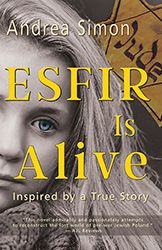Peter Behrens’s newest novel, Carry Me, weaves chapters back and forth between 1918 and 1938, revolving around events of World War I and World War II. This historical fiction novel sets the backdrop of these wars behind two dynamic characters, Billy and Karin, who were born in the same room years apart and struggle to live meaningfully during a time of upheaval in Germany and London.
Readers learn early on that Billy and Karin end up in a romantic relationship and aim to escape Nazi Germany by fleeing first to the United States and then to Canada. Karin’s father is Jewish and despite not being religious, Karin and her parents are targeted and her father is brutally attacked. Due to her Jewish appearance, Karin is sometimes accosted on the street in the presence of Billy, a non-Jew who is fed up with the way people are being treated. Despite the danger in Germany, Karin remains hesitant to leave, portraying the struggle of German Jews who felt more German than Jewish.
Billy’s childhood is full of uncertainty as he has to move multiple times for safety, change his name, and witness his father being taken away to prison, accused of spying during World War I. During Billy and Karin’s childhoods and even as they get older, they fantasize about Karl May’s Winnetou books about the Wild West, specially a place called el llano, where there was “open space, unbounded distance, harsh sunlight, nobility of character” and a way to “burn the drag of history.” Billy and Karin continue to refer to el llano as a way of saying life can be better in the future, away from hellish war-torn Europe. El llano becomes a stronger source of hope once Billy and Karin attend one of Hitler’s speeches before his ascent to power. The plot intensifies from this moment on, as Karin and her family are directly impacted by Nazism and Billy and his father struggle to find ways to help and to escape.
Throughout the novel, there are many secrets and changes in relationship status for Karin, who is very well-liked, beautiful, and carefree. Many men are enamored by her, and it is a joy to follow her journey, especially knowing that she will end up with Billy. Unfortunately, reaching the United States together does not prove to be the end of their struggles. Behrens shows the disruptions that the two World Wars have on the characters’ families in Europe: how war causes people to change, to withdraw from others, to feel less secure even in places where they are supposed to find safety.
Carry Me is a very carefully written page-turner that switches back and forth between these two important moments of history and brings readers into the intimate lives of young adults trying to find their place in a world of chaos.
Related Reads:
Jamie Wendt is the author of the poetry collection Laughing in Yiddish (Broadstone Books, 2025), which was a finalist for the 2022 Philip Levine Prize in Poetry. Her first book, Fruit of the Earth (Main Street Rag, 2018), won the 2019 National Federation of Press Women Book Award in Poetry. Her poems and essays have been published in various literary journals and anthologies, including Feminine Rising, Catamaran, Lilith, Jet Fuel Review, the Forward, Minyan Magazine, and others. She contributes book reviews to the Jewish Book Council. She won third prize in the 2024 Reuben Rose Poetry Competition and won second prize for the 2024 Holloway Free Verse Award through the Illinois State Poetry Society. Wendt holds an MFA in Creative Writing from the University of Nebraska Omaha. She lives in Chicago with her husband and two kids. Follow her online at https://jamie-wendt.com/ or on Instagram @jamiewendtpoet.




